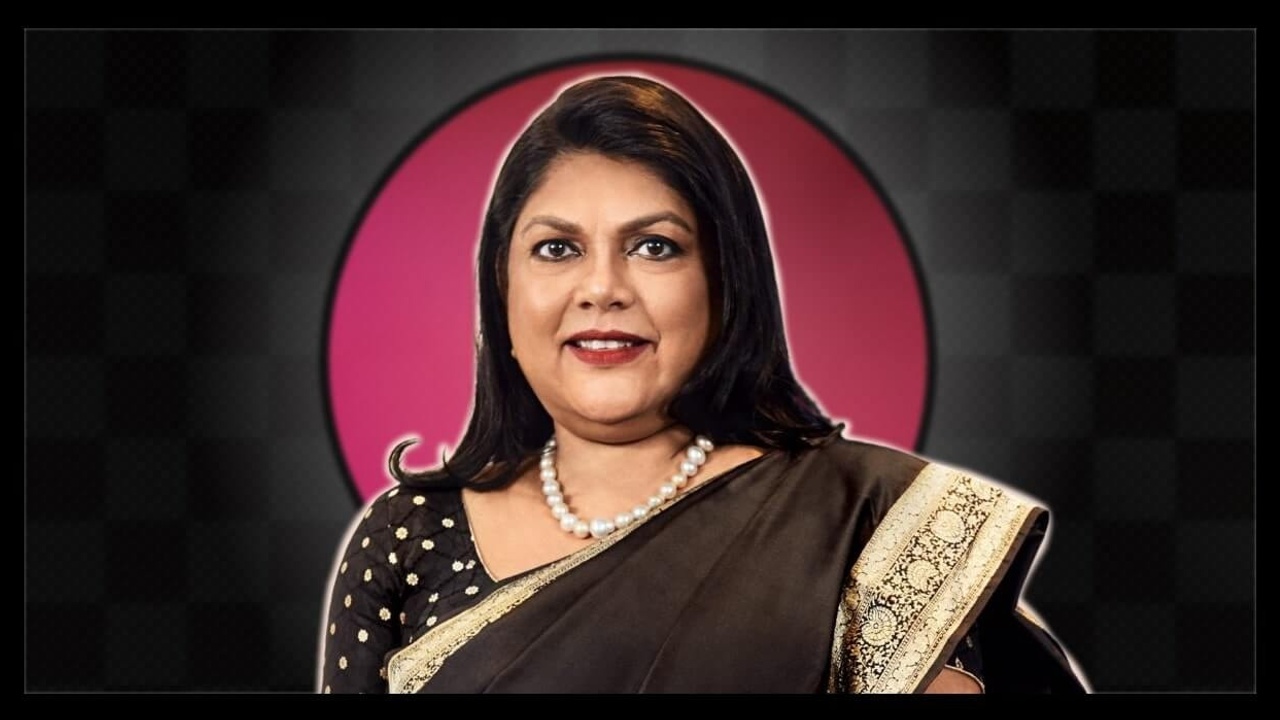How Falguni Nayar Became India’s Richest Self-Made Female Billionaire
Nov 14, 2021
Falguni called her company “Nykaa” after the Sanskrit word for heroine. With her massive success, she is undoubtedly a Nykaa herself.
She breaks every stereotype about unicorn tech founders. She’s not white. She’s not a man. She’s not a college dropout in her 20s. Yet she is a business powerhouse who now has a net worth of over $7 billion.
Falguni didn’t start Nykaa until she was 50 and she had no previous experience in retail or e-commerce. Her attempt to create India’s dominant beauty and wellness company could seem like a massive risk. She admits she “had few believers and many naysayers”.
She proved them all wrong.
She gave Indians access to global brands from an app and the demand was unstoppable. Nykaa now has 80 stores in 40 Indian cities and the parent company had $330 million in revenue last financial year.
The crazy thing is the Indian market isn’t even close to fulfilling its potential yet.
“For everyone across India who has ever had a dream, especially women, I hope the Nykaa journey — an Indian-born, owned and managed dream come true — can inspire each of you to be the Nykaa of your lives.” — Falguni Nayar
Her old day job got her here
So many internet gurus scream at you to quit your job today and become your own boss. As if it were so easy. Falguni proves there is another way and what you do in your day job can fuel your business success later.
If you look at her resume, you’ll see she was always a high achiever. She has an MBA and worked at India’s top investment bank for 18 years. Especially as a woman, you don’t become the Head of Institutional Equities unless you are seriously good at what you do. Everyone around her respected her competence.
Her banking knowledge is why her net worth is so enormous and how she kept control of 53.3% of her company’s stock. For comparison, Twitter’s founders only had 17% when they went to IPO. Falguni’s smart decision was avoiding venture capital funding and instead relying on high net worth individuals.
“Being a banker, I knew VC funds come as conditional funding; it’s not really equity. If you don’t do well, it’s debt. I wanted pure equity. We have raised Rs 185 crore over three rounds with 20 unique investors. We’ll list the company.” — Falguni Nayar
Many founders find their vision distorted by the influence of other investors and Falguni’s deep experience in the sector meant she could protect herself.
My background in tech and business has helped me succeed in online business in a way most other people simply couldn’t compete with. I see too many people ignore the competitive advantages they gained from past life experiences when starting a new venture. What is your day job? What skills do you have that others in your target market don’t?
“I hope more women like me dare to dream for themselves.”
When Whitney Wolfe-Herd took Bumble public at the start of 2020, it was a significant milestone for women in tech. I would call Falguni’s story even more remarkable because of the country she grew up in.
India ranks 140th out of 153 countries in The World Economic Forum’s Global Gender Gap Report 2021. The country’s female labor force participation rate went down from 26% in 2005 to 20.5% in 2019. There is much change to be made to empower women and lift the economy as per Nobel Laureate Amartya Sen’s groundbreaking thesis.
I know many brilliant Indian women who feel stifled by cultural expectations. To do their own thing, they’ve had to fight against the wishes of their parents. Falguni was lucky in this regard as her father treated her the same as her brother. He taught her the basics of business management and inspired her to take the route she did.
To Indian fathers out there, don’t limit the potential of your daughters. They can take on the world.
“I don’t think men are waiting to not allow women to do what they want. I think women have to want it for themselves. And if they want it for themselves, they will have it.” — Falguni Nayar
Get on the rollercoaster early
The average spending power of an Indian is just over 10% of an American. This inequality can’t survive in the long term. Indian living standards and their influence on global demand will continue to rise. The problem is no one knows how fast this will happen.
Falguni had the foresight so many others lacked. She knew India would have a huge online retail market and realized the competition was weak. This allowed her to get in early and capture a significant market share of a fast-growing segment. It would be much harder for a copycat business to launch today because Nykaa has such a strong reputation.
Just as how Amazon started in the book market then expanded, Nykaa moved into the fashion business and created private labels. It’s smart business sense to dominate a small sector first where the competition is weak to gain the strength to take on larger segments. Now 20% of Nykaa sales are in fashion.
Many entrepreneurs start from their idea rather than looking at what the world will need in the future. Competition is vicious in markets where people have a short-term outlook. It’s much calmer where you need a longer-term perspective. If you can take this path and focus on upskilling in the meantime, you may have a better chance.
What’s great about Falguni’s story is even her intense analytical brain, she loves what she is doing. I wish we could all be so lucky.
“The size of the prize doesn’t really matter. Being rewarded for doing what I love doing is the key. Share prices are the bonus.”

